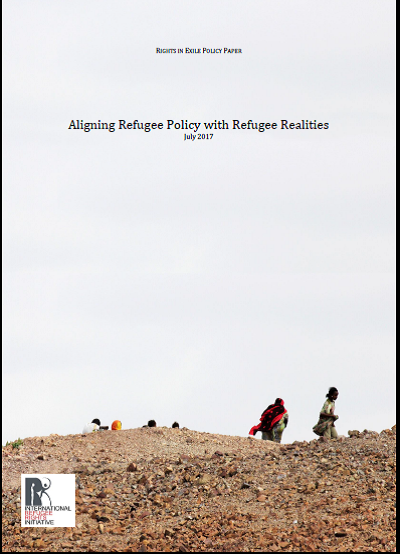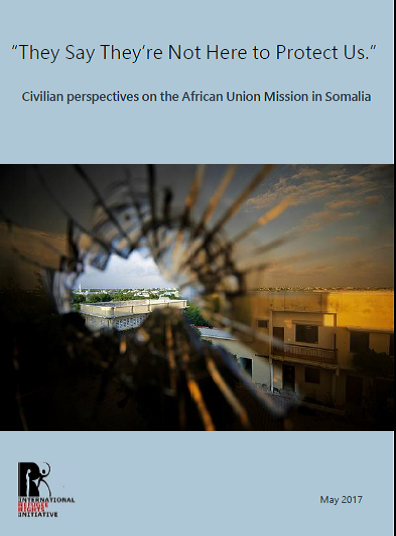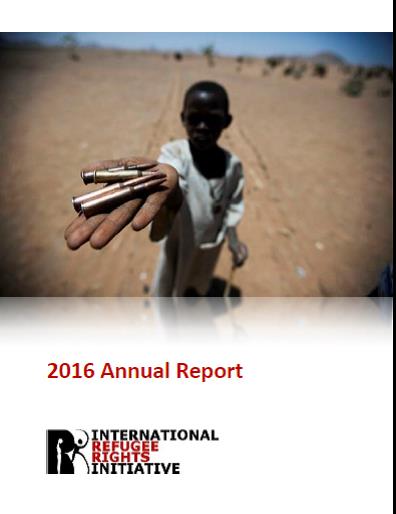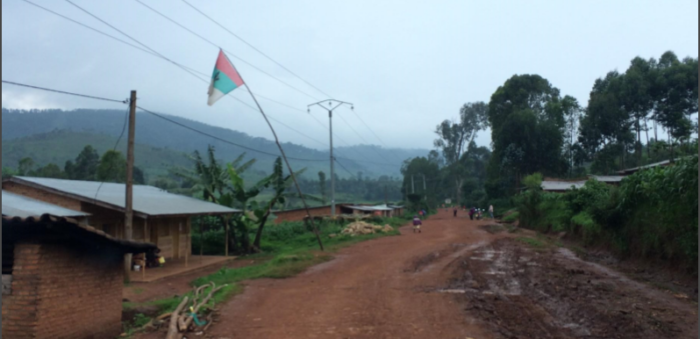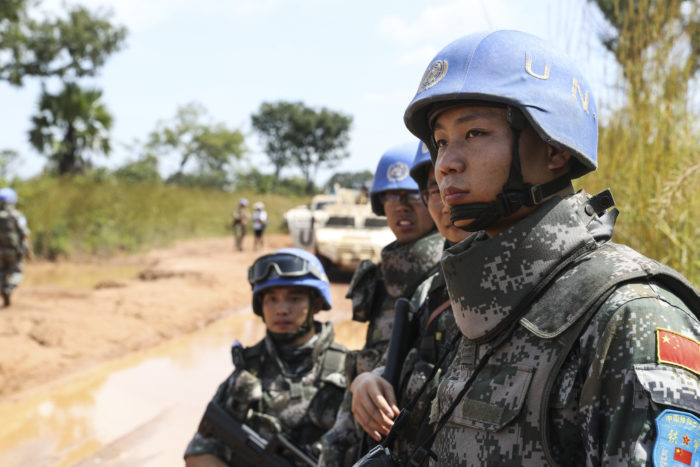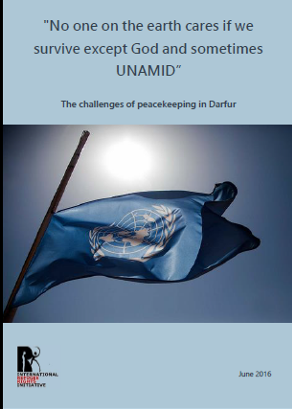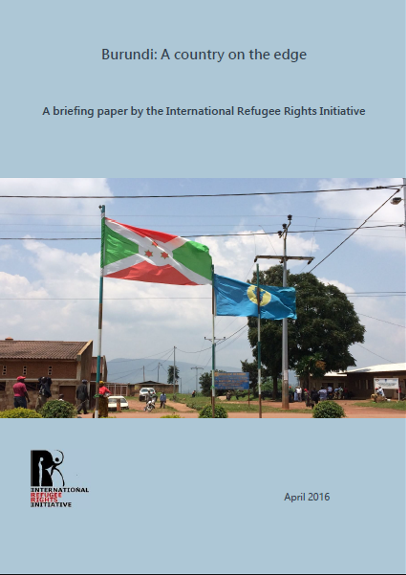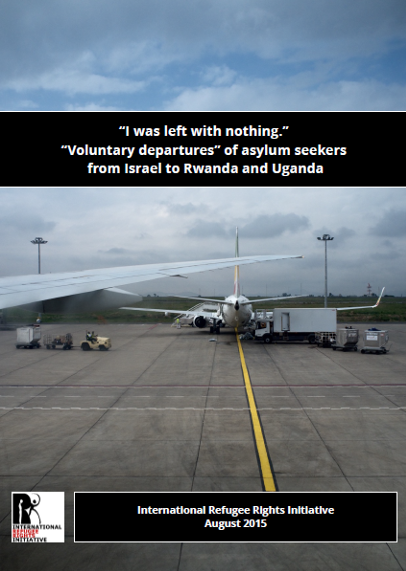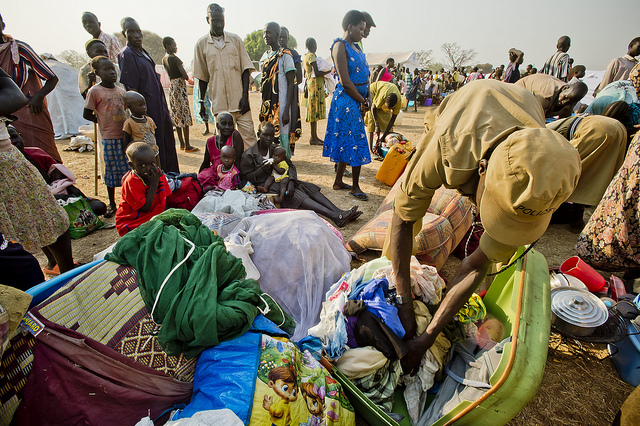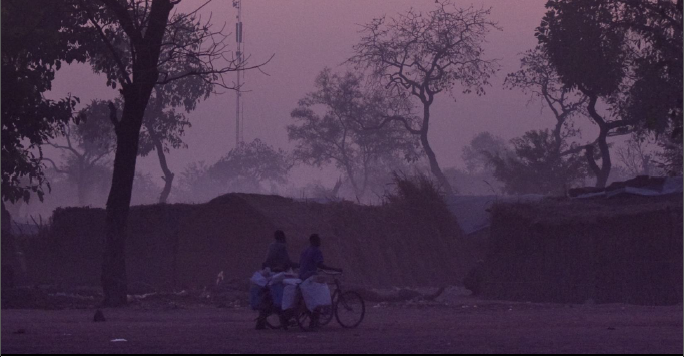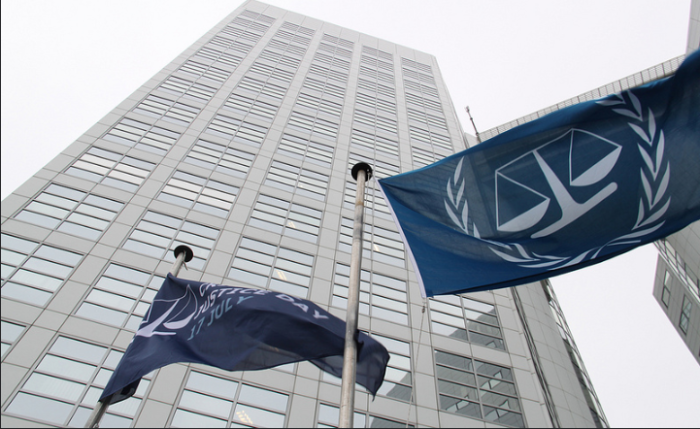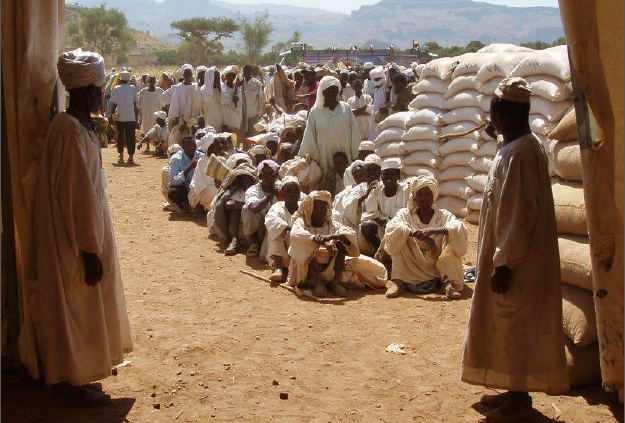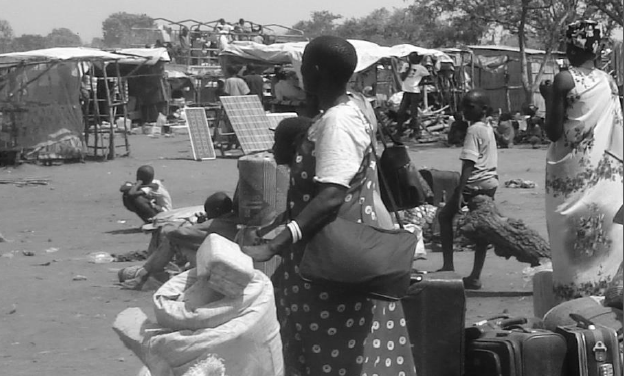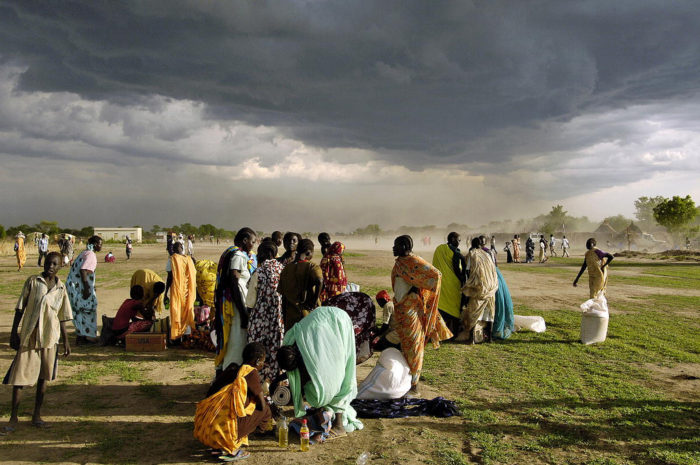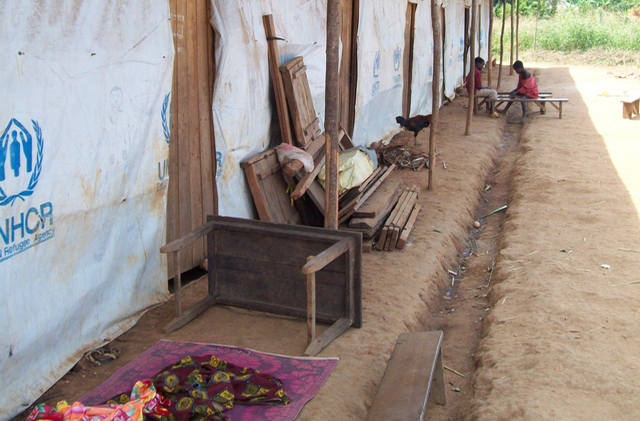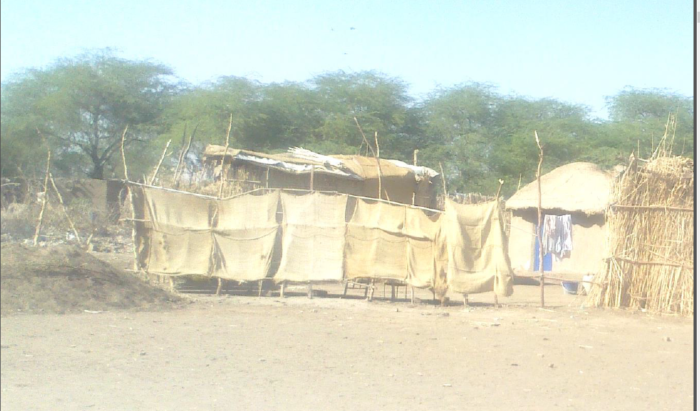This paper draws on six years of field research in the Great Lakes region, incorporating nine units of field research. Each study focused on the links between citizenship and forced displacement in the Great Lakes region and examined both the differences and the interaction between local and national understandings of belonging.
International Refugees Rights Initiative (IRRI) today launched a report about civilian perspectives on the African Union Mission in Somalia (AMISOM), whose mandate has been recently renewed. This report is based on interviews with 62 Somalis and is the third in a series on civilian perspectives of peacekeeping forces in Africa. The report highlights that many in Somalia…
The International Refugee Rights Initiative (IRRI) publishes an annual report on progress made in three focus areas: identifying the violations that cause displacement and exile; protecting the rights of those who are displaced, and ensuring the solutions to their displacement are durable, rights respecting, safe and timely. The 2016 report summarizes our work and looks…
(7 December 2016) Today, the International Refugee Rights Initiative launched a new report, “I Know the Consequences of War: Understanding the dynamics of displacement in Burundi”. The report brings much needed insight as to how Burundians are deciding to flee or stay in a context in which more than 300,000 are already in exile. The…
On the two-year anniversary of the outbreak of violence in South Sudan, IRRI has published a new report, “Protecting some of the people some of the time: Civilian perspectives on peacekeeping forces in South Sudan”. The report examines civilian perspectives of peacekeeping forces in South Sudan within the broader context of the conflict and…
(Kampala, 6 September 2016) Five years after the start of the conflict in Sudan’s Blue Nile State, attacks against civilians continue unabated according to a report released by the International Refugee Rights Initiative (IRRI) and the National Human Rights Monitors Organisation (NHRMO) today. A Crisis Normalised: Civilian perspectives on the conflict in Sudan’s Blue Nile…
(23 June 2016) With the UNAMID mandate renewal under discussion at the UN Security Council, a new report released today by the International Refugee Rights Initiative provides an analysis of the joint United Nations-African Union Mission in Darfur (UNAMID) as seen by some of the civilians the force is mandated to protect. The report, “‘No…
With the UNAMID mandate renewal under discussion at the UN Security Council, a new report released today by the International Refugee Rights Initiative provides an analysis of the joint United Nations-African Union Mission in Darfur (UNAMID) as seen by some of the civilians the force is mandated to protect. The report, “’No one on the…
The International Refugee Rights Initiative (IRRI) today launched a briefing paper entitled, “Burundi: A country on the edge.” Drawing on a mission to the country in February, in-depth interviews with refugees who have fled to Uganda, and IRRI’s previous experience in the country, the briefing offers insights on some crucial aspects of the current…
A new report launched today by the International Refugee Rights Initiative (IRRI) exposes how Israeli transfers of Eritrean and Sudanese asylum seekers to Uganda and Rwanda leaves them without status and vulnerable to exploitation. “Our research shows that Israel is not only failing to respect its own obligations under international law, but is directly increasing…
While Europe squabbles over the acceptance of thousands of migrants and asylum seekers arriving over the Mediterranean, over the past year 154,134 refugees of South Sudanese origin alone have been assisted in Uganda, with Adjumani District receiving around 87 new arrivals every day. Despite the fact that Adjumani is itself recovering from decades of conflict,…
The ongoing conflict in Sudan’s Southern Kordofan (SK) and Blue Nile (BN) states, while massively underreported, has had devastating consequences. Widespread aerial bombardment of rebel held civilian areas by the government of Sudan (GoS) are a hallmark of the conflict, and more than 3,000 bombs – on average three a day – have fallen since…
When the Rome Statute of the International Criminal Court (ICC or “the Court”) was adopted in 1998, it was greeted with great fanfare by human rights activists around the world as an important milestone in the progress of the human rights movement. As the Court began to investigate its first cases in 2003-04, many civil…
The International Refugee Rights Initiative released a new report today,“‘It is a joke’. Ongoing conflict and controversies over ‘return’ in Sudan’s Darfur region“. The report brings the voices of the displaced to light, documenting their experiences around the controversial issue of return. It reveals that although the security situation in Darfur remains precarious, internally displaced…
(20 June 2014) On the occasion of World Refugee Day, the International Refugee Rights Initiative (IRRI) is launching a paper aimed at policy makers dealing with refugees. Based on nine case studies across the region carried out by IRRI over six years, it contends that the framework of citizenship can contribute positively to a better…
“We could not wait for our dead bodies to be found first” Nearly a quarter of a million South Sudanese have fled to neighbouring countries, with Uganda taking the largest number – around 87,000. The International Refugee Rights Initiative’s report, Conflict in South Sudan: Refugees seek protection in Uganda and a way home explores the…
The Convention for the Protection and Assistance of Internally Displaced Persons (IDPs) in Africa – the Kampala Convention – was adopted by the African Union (AU) Heads of State Special Summit in Kampala, Uganda, on 23 October 2009. It is the first independent legally binding regional instrument in the world to impose on states the…
Based on interviews conducted in Nakivale settlement in Uganda and discussions of the findings with the government of Uganda and UNHCR, the briefing tells the story of a small number of Burundian refugees and asylum seekers who have fled into a second phase of exile. As former refugees living in Tanzania’s Mtabila refugee camp, they…
The adoption of the responsibility to protect as part of the World Summit outcome document represented a historic commitment to protecting populations from genocide, ethnic cleansing, war crimes and crimes against humanity (“atrocity crimes”). By affirming the responsibility of states to protect populations within their borders, and by affirming the right of the international community…
A new report by IRRI launched yesterday in Addis Ababa urges Sudan and the African Union (AU) to take a new approach to resolving Sudan’s multiple conflicts and ending the ongoing suffering of its people. The disappearance of Sudan? Life in Khartoum for citizens without rights examines the experience of people living in Khartoum State…
